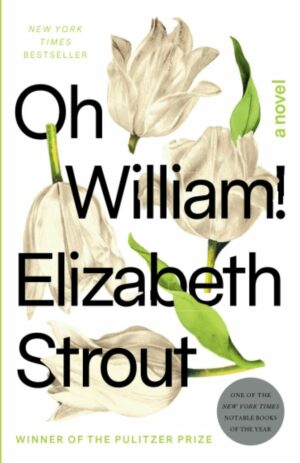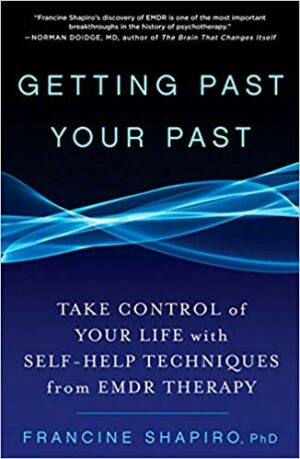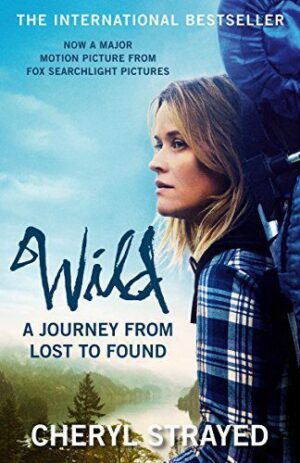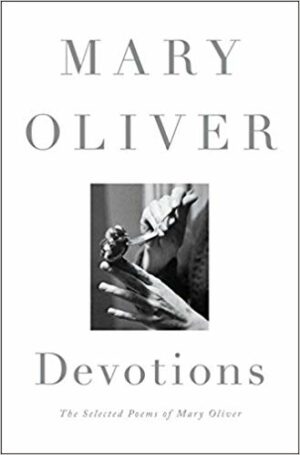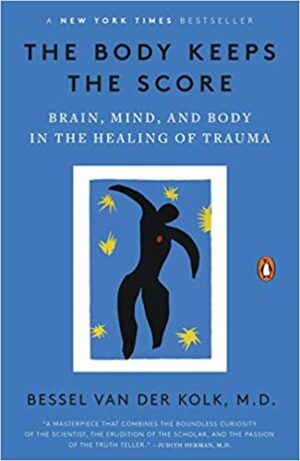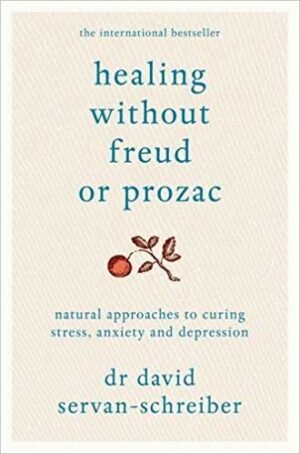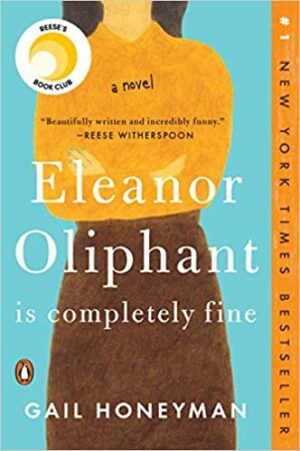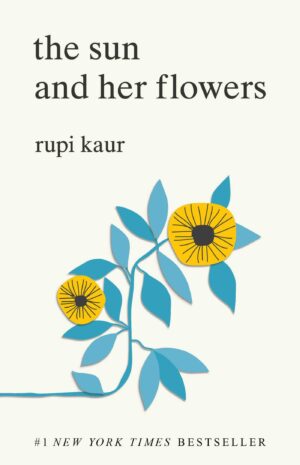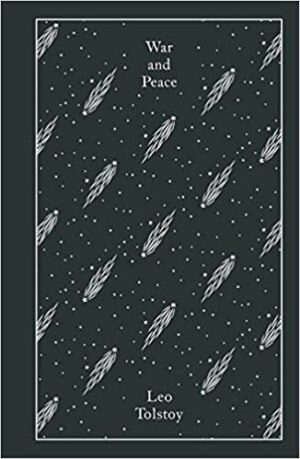10 books that helped me through PTSD and trauma
I only share books I know and love. If you buy through my links, I may earn a commission (learn more).

Eight years after finishing EMDR therapy for diagnosed PTSD, I’m still not entirely sure how to relax completely.
I often catch myself holding my breath. Feeling on edge gives me a strange sensation of control. And I still sometimes physically feel like I’m being chased by a bear.
But I’ve gotten rid of 95% of the trauma symptoms. I am feeling so much better than I used to. I’ve been living my life – and thriving.
What’s left could be down to other things, especially as I have Asperger’s syndrome. This probably contributed to my trauma response in the first place, after I saw my sister nearly drown, struggled with my parents’ divorce not long after, and got into unhealthy relationships as a teenager. I was also diagnosed with general and social anxiety at the same time as PTSD.
Now I’m in a much better headspace, my job is self-help and self-care: to be more conscious of my body, learn how to slow down, and keep reading books that help me to heal.
Bibliotherapy, or healing with books, is just as applicable for PTSD as it is for anxiety, depression, and wider mental health. Books can show us the way when we need it most.
Here are the best books for PTSD and overcoming trauma that I’ve read so far, many of which I keep returning to time and time again.
I’ve included some of the best non-fiction and self-books for PTSD, but also some of the best novels with characters that have PTSD, as well as some other relaxing, comforting, and empowering books that have helped me in adjacent ways.
The best books for PTSD and overcoming trauma
1. Oh, William! by Elizabeth Strout
Why? Because it has one of the most lovable and relatable fictional characters with PTSD.
Elizabeth Strout’s Lucy Barton books are some of the best novels about PTSD and living with trauma. In Oh William!, the second book in Strout’s Amgash series, main character Lucy Barton navigates her relationship with her ex-husband – but also shares more about her traumatic childhood and how it’s shaped her as an adult.
Like her other books, Strout’s memoir-cum-novel is so honest, raw, and quietly moving. There are casual mentions of heartbreaking things – these aren’t triggering as such, but hint at how trauma victims can normalise experiences and feelings. This book is real proof of what Hilary Mantel has called Elizabeth Strout’s “perfect attunement to the human condition.”
2. Getting Past Your Past by Francine Shapiro
Why? Because it helped me to continue benefitting from EMDR therapy on my own.
EMDR therapy changed everything for me. I know that CBT has been incredibly powerful for millions, but the few sessions I tried left me a complete mess afterwards.
That’s not to say that EMDR is easy – it forces you to relive the most difficult moments of your life, and I spent many a session crying and having panic attacks. But the thing is, it taught me how to deal with it in a safe environment with a professional.
EMDR did so much more than I thought it would. Not only did it help me to view the traumatic events of my life through a new lens, but it also gave me the confidence to speak up, be seen, and make bold choices.
Francine Shapiro’s self-help book for EMDR, Getting Past Your Past: Take Control of Your Life with Self-Help Techniques from EMDR Therapy, is such a valuable resource to complement therapy or to give you a gentle introduction.
3. Wild: A Journey by Cheryl Strayed
Why? Because Cheryl Strayed gave me the courage to keep climbing the mountain and make big changes.
When I’m going through a tough time, I often turn to Cheryl Strayed’s writing. I like her collection of quotes, Brave Enough: A Mini Instruction Manual for the Soul: her words are a fantastic balm for when you’re feeling powerless, anxious, and lost.
I also love this quote from Wild, her memoir of hiking the Pacific Crest Trail after loss, trauma, and addiction:
“Fear, to a great extent, is born of a story we tell ourselves, and so I chose to tell myself a different story from the one women are told. I decided I was safe. I was strong. I was brave. Nothing could vanquish me.”
Cheryl Strayed’s books also encouraged me to travel and go on more adventures, which has had a domino effect on the strength and power I feel in other areas of my life. By pushing my limits physically, I’ve realised just how mentally strong I am.
4. Devotions by Mary Oliver
Why? Because Mary Oliver’s poetry is one of the best reminders of the healing powers of nature.
Devotions is a collection of more than two hundred of Mary Oliver’s best poems. She’s one of the best writers for calming me down during anxious moments, and her books helped me when experiencing PTSD symptoms, too.
Treasure the words of “The Summer Day”: Tell me, what is it you plan to do with your one wild and precious life?
Then, turn to “The Old Poets Of China” when the world offers you its busyness: Now I understand / why the old poets of China went so far and high / into the mountains, then crept into the pale mist.
And finally, read “I Go Down To The Shore” for an amusingly firm response from nature to our anxieties: Excuse me, I have work to do.
5. The Body Keeps the Score: Brain, Mind, and Body in the Healing of Trauma by Bessel Van Der Kolk, M.D
Why? It’s an excellent exploration of the mind-body connection that made me more conscious of how I felt physically.
The Body Keeps the Score is one of the most popular books about trauma, reaching bestseller lists and helping millions of people to think about how the past is still showing up in their body. The On Being podcast episode with Bessel Van Der Kolk is fabulous too.
6. Healing Without Freud or Prozac by Dr. David Servan-Schreiber
Why? Because it gave me strategies other than therapy to start feeling better.
A similar book about the mind-body connection and trauma is Healing Without Freud or Prozac. I found this book so useful when I was going through a rough patch as a teenager. It’s also one of the reasons I decided to start EMDR therapy when I was at university.
While Freud and Prozac may well help you, in my own life these alternatives – including EMDR therapy, yoga, and meditation – suited me better. Make sure that you get the help you need, though: some of these treatments might be a great help in collaboration with other therapy and medication, but not enough on their own. You know yourself.
7. Eleanor Oliphant is Completely Fine by Gail Honeyman
Why? It’s a heartwarming novel about a relatable woman and her mental health journey.
If you’re looking for a novel with fictional characters with PTSD to relate to, Eleanor Oliphant is a good choice (alongside the Elizabeth Strout recommendation at the start of this list). Gail Honeyman’s novel is known for being heartwarming and easy-going, but it doesn’t shy away from themes of mental health and gentle self-acceptance.
In a Reddit thread about the best portrayals of PTSD in fiction, ndcomeau shares: “Eleanor Oliphant is Completely Fine has a good representation of PTSD. My mom had a similar childhood to Eleanor (thankfully she didn’t experience the absolute worst Eleanor did) and she identified with the way it was written. She predicted a major plot point because ‘I lived it. I know how it works.’ So there’s that.”
8. The Sun and Her Flowers by Rupi Kaur
Why? Because it showed me strength and boldness.
Rupi Kaur is probably the most mainstream poet I could add to this list, but I loved The Sun and Her Flowers. Here’s one of my favourite short poems from the collection:
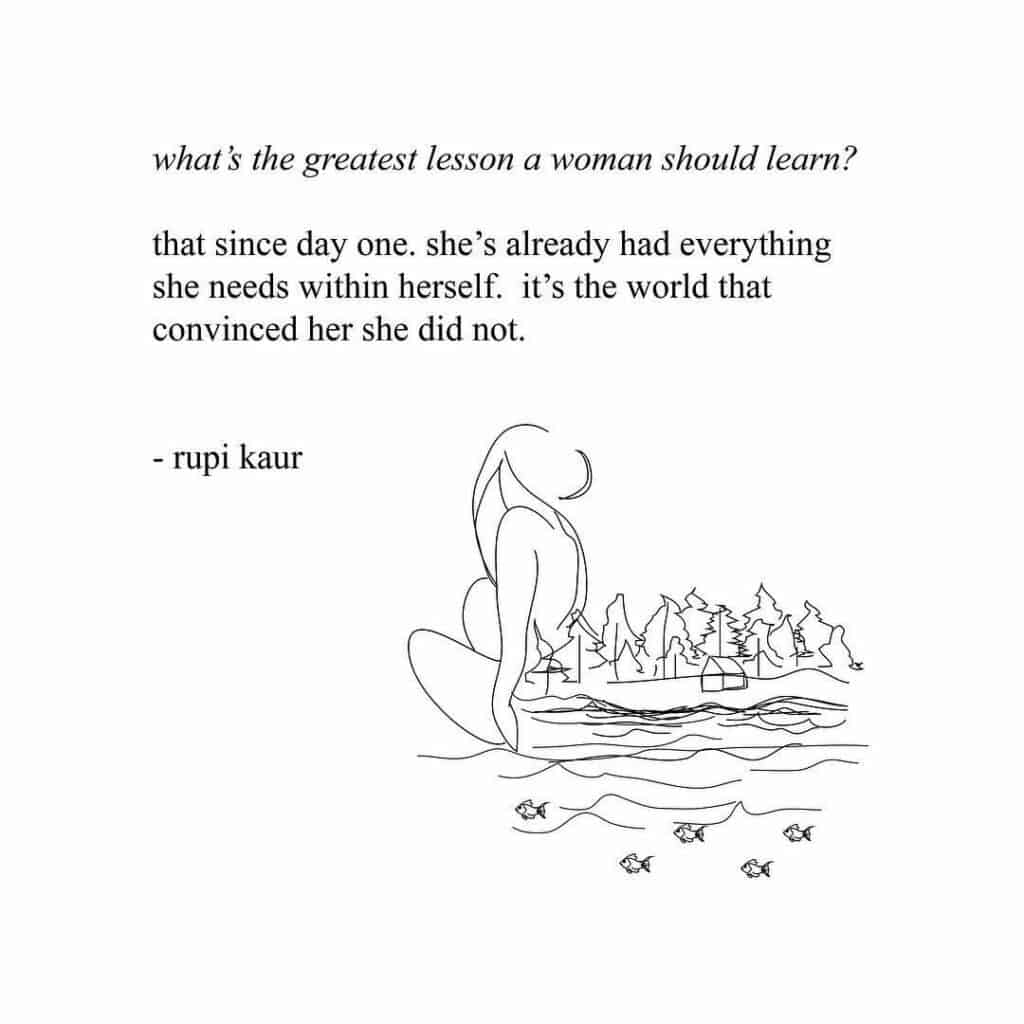
I read this collection several years after I finished EMDR therapy and had overcome the worst of my PTSD symptoms, but it acted as a top-up of sorts. Quite stereotypically, this book also helped me through a difficult breakup.
9. “Ulysses” by Lord Alfred Tennyson
Why? Because it’s a poem that reminded me to strive, to seek, to find, and not to yield.
I’ve written before about how memorising poetry has helped me to get through anxiety, and Tennyson’s “Ulysses” is my go-to favourite. You might recognise it as the poem that M, played by Judi Dench, reads towards the end of the Skyfall movie. This section is one of my favourite pieces of poetry about trauma and overcoming the past:
Tho’ much is taken, much abides; and though
We are not now that strength which in old days
Moved earth and heaven; that which we are, we are;
One equal temper of heroic hearts,
Made weak by time and fate, but strong in will
To strive, to seek, to find, and not to yield.
10. War and Peace by Leo Tolstoy
Why? It taught me about life.
How can I not mention War and Peace? It changed the course of my life. I’ve read it five or six times since 2012, when I started this blog. By reading so much Tolstoy, I’ve learned that life consists of many moments. Some are bad, but more of them are good.
While EMDR therapy was crucial in my journey of dealing with PTSD and making every aspect of my life easier, books like War and Peace have been firm friends on the journey. I’m not sure what my last ten years would have been like without it.
Here are some of the reasons why I love War and Peace, and here’s my guide to reading it.
More of the best books for CPTSD
If you’re looking for more books for PTSD, over on Reddit there’s an excellent list (which I’ve shared below) of the best books for CPTSD (Complex Post Traumatic Stress Disorder). I haven’t read all of these, but the author shared:
“These books literally saved my life. Collectively, they contain hundreds of years of research and wisdom. So many of us stumbled through the dark for years, sometimes decades, without answers. Books will save the world, mark my words.”
- Permission to Feel by Marc Brackett
- Whole Again: Healing Your Heart and Rediscovering Your True Self After Toxic Relationships and Emotional Abuse by Jackson Mackenzie
- Running on Empty: Overcome Your Childhood Emotional Neglect by Jonice Webb
- Hold Me Tight: Seven Conversations for a Lifetime of Love by Sue Johnson
- Insecure in Love by Leslie Becker-Phelps
- The Body Keeps The Score by Bessel Van Der Kolk
- Codependent No More by Melody Beattie
- Adult Children of Emotionally Immature Parents by Lindsay Gibson
- Healing From Hidden Abuse by Shannon Thomas
- Complex PTSD by Pete Walker

